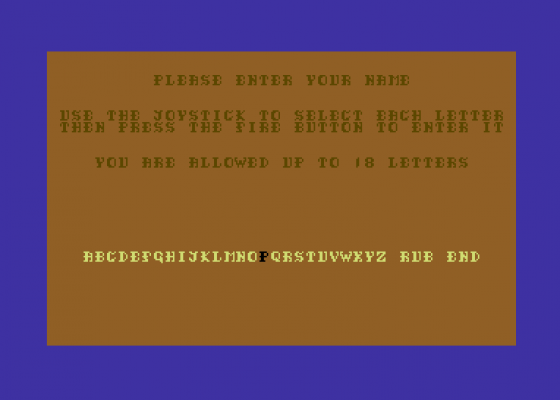
C&VG
 16th August 1984
16th August 1984
Hercules
Hercules, the first release from a new software house called Interdisc, could be described as Manic Miner meets ancient Greek mythology.
It's definitely in the tradition of the Miner — 50 screens filled with climbing, hopping and jumping. But there's a bit more to Hercules than the run-of-the-mill Miner clone. More of that later — now for the history lesson.
The game is based on the Greek myth, The Twelve Labours of Hercules. Hercules was the son of the chief Greek god, Zeus. One day, in a fit of madness perhaps after eating a really rancid kebab — he killed his wife and their young children.

Afterwards old Herc felt really upset by this lapse of normal behaviour and decided that he must do something to make up for all that killing. So like all good Greek myths, he trotted off to the Oracle at Delphi — a sort of early advice bureau — to find out how he could atone for his sins.
Hercules was ordered to serve King Eurystheus for 12 years — performing all the feats the King commanded — which later became known as The Twelve Labours of Hercules. And that's where the game kicks off.
You play the part of Hercules and have to complete all those 12 labours. Each labour takes the form of a screen featuring a different climbing, jumping and hopping challenge. Each screen has a neat text intro which describes the story behind the screen in great detail. Although it's nice to read a little story before getting into the game, I really would have liked a bit more basic information on how to play each screen.

The screens come in different configurations - but basically feature platforms, ropes to swing on and an objective to reach — and there are invisible platforms which only appear if you do the right things! This makes the game slightly like a graphic Adventure and also brings in a spot of strategy to add an extra challenge.
Interdisc claims bravely that the game is the first in the world to feature the Random Access Principle. What this means is that screens will appear at random as you go through the game and no one session with the game will be the same.
The 50 screens are divided up among the 12 labours but not evenly. If you complete one screen of a particular labour, you move onto the next — finish an entire labour successfully and the RAP selects another labour for you to tackle.
If Hercules stays in one place for too long, he is engulfed in flames — so you soon learn to move quickly!
All of which adds up to a nice new twist on the climbing game theme. The only criticism I have is the lack of comprehensive game playing instructions and the lack of a practice mode. I found myself losing lives too quickly when I began playing the game.




